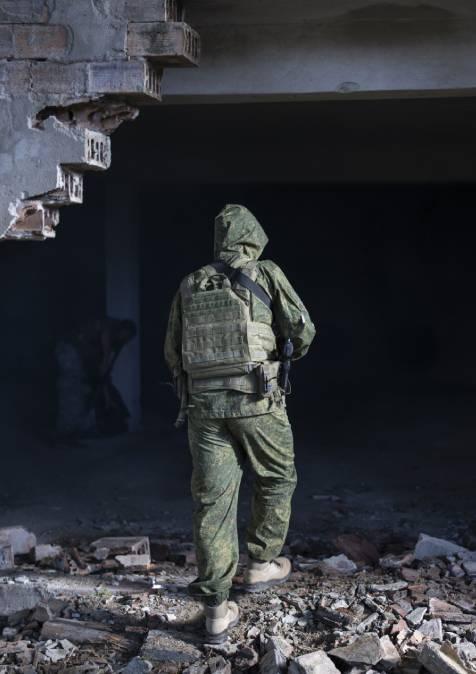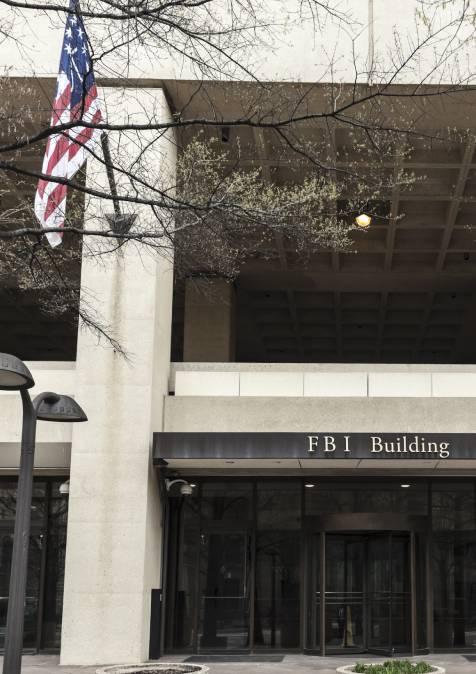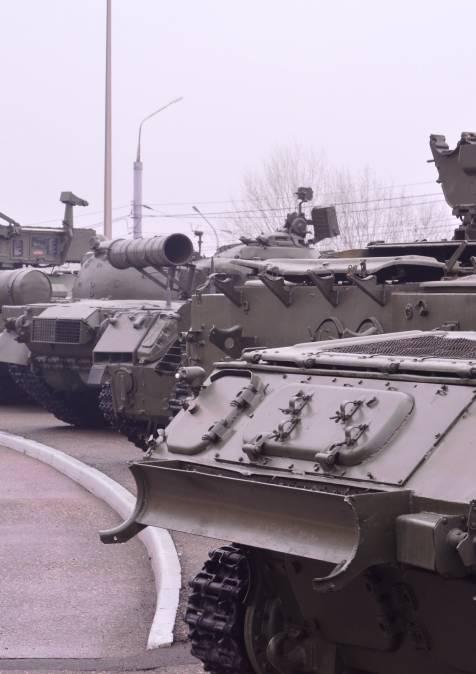Publications /
Opinion
In early January 2023, a man was detained near the Russian-Norwegian border at 1.58 a.m. local time. The night was frost-bite cold and the man, a Russian citizen, had run across the frozen Pasvik River, at a place where it was a few hundred meters wide. He’d jumped some barbed-wired fences, which demarcated the border. The Russian avoided official checkpoints because he was a fugitive, and dogs were following him through the polar night, barking, menacing. Their masters aimed at the man and fired their weapons.
It was a “high-stakes escape”, noted London’s Daily Telegraph (January 15, 2023), since this man was a commander in Russia’s infamous paramilitary army, the Wagner Group. He is the first known soldier from the Wagner Group to dare to make such an escape from the frontlines of Ukraine and flee abroad (The Guardian, January 17, 2023). Once in Norway, Andrey Medvedev, 26 years old, was flown to Oslo, where he identified himself as a Wagner Group squad commander, who had been fighting mainly in and around the Ukrainian town of Bakhmut. The Norwegians were prepared to deal with Russians trying to evade military service but Medvedev was a wanted man, a witness to war crimes in Ukraine. He was disaffected by the mistreatment of the convicts, who were “used as cannon fodder, like meat. I was given a group of convicts. In my platoon only three of out of ten men survived. We were then given more prisoners, and many of them died too.”
Medvedev insisted he never committed war crimes, but witnessed executions of at least 10 comrades, who disobeyed orders and /or refused to fight. In particular he remembers Yevgeny Nuzhin, one of the many former convicts among his troops. Nuzhin had surrendered to Ukrainian troops, and later was returned to the Wagner Group in a prisoner exchange. His superiors accused him of desertion, possibly because he refused to die in combat, and executed him with a sledgehammer blow to the skull.
The founder of the Wagner Group, and a friend of Russian President Valdimir Putin, is Yevgeny Prigozhin. He was known as ‘Putin’s chef’, since his catering conglomerate Concord and restaurants in St Petersburg served Putin’s state dinners and organized receptions. It was no surprise that he was awarded contracts worth more than $1 billion for supplying the Russian military with meals. Prigozhin, apparently a billionaire, has in the past sued journalists linking him to the Wagner Group, “which has been accused of committing gross human rights abuses in Africa, Syria and Ukraine” (Foreign Policy, October 3, 2022). In Oslo the former Wagner Group commander Andrey Medvedev stated his willingness to testify in a war crimes trial against Prigozhin, whose arrest the FBI will reward with $250,000.
Increasing pressure
Prigozhin’s efforts to burnish his credentials as commander comes as Putin is under increasing pressure, with the Russian armed forces plagued by low morale and high casualties, prompting speculation as to future ambitions[SG1] . “Wagnerites tell me they’d vote for him over Putin any time, and it seems to me he smells blood,” wrote Christo Grozev, lead Russia investigator with the open source investigative group, Bellingcat on Twitter (September 22, 2022). Putin’s chef, revealed Alison Quinn in the Daily Beast (August 6, 2022) “is personally touring Russia’s prisons for Wagner recruits to fight in Ukraine, reports say.” Prigozhin is entering familiar territory. From 1981 to 1990 he was imprisoned for fraud and theft, robbery and the organization of prostitution. Footage, showing Prigozhin personally trying to recruit convicts from jail was leaked to the media. “The video would confirm long running speculation that Russia hopes to boost its forces by recruiting convicts,” said the BBC (September 15, 2022).
The war in Ukraine has shown that Russian soldiers are not or are hardly prepared for an enemy as tough and determined as the Ukrainians, who are defending their soil and future. Moscow, which for an eternity rejected any knowledge of mercenary troops under its command, ultimately ordered Chechen fighters to support the failing Russian troops, while hundreds of an estimated 2000 Wagner fighters, stationed in Libya, were flown to airports near Ukraine to strengthen the Wagner Group.
The Times reported that the Wagner Group flew more than 400 contractors from the Central African Republic in mid to late January 2022 on a mission to assassinate Ukrainian President Volodymyr Zelensky and members of his government, and thus to prepare the ground for Russia to take control of Ukraine, the invasion of which began on February 24, 2022. By March 3, according to The Times, Zelensky had survived three assassination attempts, two of which were allegedly orchestrated by the Wagner Group. On March 22, 2022, Danielle Wallace on Fox News said that more Russian Wagner Group mercenaries had been sent to eliminate Zelensky.
Media reports have also indicated that contractors played a leading role in the massacre of civilians in Bucha, Ukraine, according to the German Intelligence Service BND (Bundesnachrichtendienst). Intercepted radio communications suggested the killings were part of a Russian plan to instill fear in the population, thus reducing its will to resist. Putin’s friend Prigozhin no longer hesitates to compete with the Russian Ministry of Defense, claiming glory and exaggerating the fighting power of his paramilitary troops. Days, or even weeks before the fall of the Ukrainian town of Soledar, Prigozhin claimed his fighters were in “full control there.” And: “No other units took part in the storming of Soledar apart of Wagner.” Moscow’s Ministry of Defense contradicted this (BBC, January 11, 2023). On January 13, 2023, the New York Times confirmed: “A Russian claim of victory in a town of eastern Ukraine exposed a growing rift in Moscow’s war effort, as the Russian military and a private mercenary group contradicted each other publicly about who should get credit for the gains.”
In December 2022, Washington National Security Council spokesperson John Kirby claimed that the Wagner Group has 50,000 men fighting in Ukraine—an estimated 10,000 mercenaries and 40,000 convicts. Reliable figures on war casualties suffered by the Wagner Group in Ukraine do not exist, but on December 22, Kirby claimed that around 4000 Wagner fighters had been killed in fighting around Bakhmut in the previous weeks, including some 1000 recruited convicts. The names and photographs of those former prisoners hired by Prigozhin were published by the website The Insider—killed in action within two months in 2022. Silkway News ( January 14, 2023) confirmed that “during the battles in the Soledar/Bakhmut section, 4000 Wagner mercenaries died. 10,000 were injured.”
Part 2
A New Chapter in Russian Military History
Pro-Kremlin military bloggers, reported the BBC (January, 11, 2023), have lavished praise on the Wagner Group. One blogger wrote, “when Soledar and Bakhmut are liberated, it will be a new chapter in Russian military history. The first time that a private military company has shown such results in a highly intensive military conflict.” For Putin’s chef, any victory of his forces would bolster the reputation of Wagner as an effective fighting force in the eyes of President Putin. “Shrouded in secrecy for years,” noted Al-Jazeera (August 10, 2022), “Russia’s Wagner Group is opening up, even allowing the secret to be known that the private army of Mr Putin will soon open its PMC-Wagner-Center,” its visible headquarters, including a technology center, in St Petersburg. Kremlin spokesperson Dmitry Peskov told reporters, “everyone is working for a common cause: everyone is fighting for the motherland” (Financial Times, January 16, 2023). During a New Year’s Eve reception, Putin awarded a medal of valor to Aik Gasparyan, a convicted armed robber, who opted to kill the enemy, once considered brothers, and obtain cash and freedom in exchange.
The Wagner Group started its military engagement in Ukraine in 2014, participating in the annexation of the Crimea. Its fighters were also active in supporting Russian-backed separatists in the Luhansk region of Ukraine. Dmitriy Utkin, a veteran of the first and second Chechen wars, could claim to be the founder of the group, but seemed reluctant to quarrel with Putin’s chef, Mr Prigozhin, who may imagine replacing Putin one day, supported by paramilitary power. Utkin was once a lieutenant colonel and brigade commander of a unit of special forces of Russia’s Main Intelligence Directorate (GRU). Later he named his paramilitary group Wagner, after German composer Richard Wagner, who was admired by Adolf Hitler, and Utkin as well.
Russian mercenaries fighting in Ukraine, including the Kremlin-backed Wagner Group, wrote Mark Townsend, in Britain’s The Guardian (March 20, 2022) “have been linked to far right extremism … Much of the extremist content, posted on the messaging app Telegram and the Russian social media platform VKontakte, relates to a far right unit within the Wagner Group called Rusich. One post on Telegram, dated March 15, shows the flag of the Russian Imperial Movement, a white supremacist paramilitary. Another recent VK posting lists Rusich as part of a coalition of radical groups and militias, including the extreme far right Russian National Unity.”
The Wagner Group’s own ties to the Russian far right are “well documented,” wrote Justin Ling in Foreign Policy (March 15, 2022). The likely founder of the group, Dmitry Utkin, reported Nathan Sales and Ali Soufan on NBC News, “reportedly wears Nazi tattoos, including a swastika, a Nazi eagle and SS lightening bolts” (April 6, 2022). In December 2016, Utkin was honored by Putin in the Kremlin. Meanwhile, Maksim Borodin, a 32 year old investigative reporter of the Yekaterinburg website Novy Den, which dared to publish critical news on the secretive Wagner Group, fell from his fifth-floor apartment in the city of Yekaterinburg.
Hundreds of the so-called ghost soldiers of an unofficial, nonexistent army perished in the desert of Syria, in close combat, and some of the 2000 fighters were hit by airstrikes from US fighter bombers. The Kremlin hardly reacted though, because ghosts don’t die. For years the phantom soldiers of the Wagner Group were used by Moscow to allow for plausible deniability in certain conflicts. Libya comes to mind, or Syria, or recently Mali. Obscured from the public are the real numbers of casualties, as in Ukraine, and the financial costs of Russian foreign interventions, as in Libya, an adventure largely paid for by Sheiks of Gulf Emirates. Mark Galeotti of the openDemocracy website (August 29, 2017) argued that “Moscow’s mercenaries reveal the privatization of Russian geopolitics,” a private military company using as a training base a military installation in Southern Russia, while military planes transported the mercenaries from Syrian bases to the frontlines of Libya, supported from the air by fighter planes flown in from Russian bases. As Galeotti wrote, for Putin “state” and “private” are “often one and the same thing.”
Mercenaries are illegal under Russian law, but “that does not stop them from being a central element of the Kremlin’s geopolitical adventurism.” The Wagner Group has or had offices in 20 African countries, including Lesotho and Botswana, and its paramilitary units were deployed to Sudan, the Central African Republic, Madagascar, Angola, Zimbabwe, Guinea and Guinea Bissau, Mali, and Mozambique.
Guns for Hire
In 2019, Russian mercenaries spearheaded the battle for Libya’s capital Tripoli. Their arrival, said the Washington Post (November 5, 2019) added “deadlier firepower, modern tactics to Libya’s civil war.” “Russian snipers, missiles and warplanes try to tilt Libya’s war,” confirmed the New York Times ( November 5, 2019). Yet, the Wagner Group soon confronted seasoned soldiers sent by Turkey and had to retreat hastily from positions around the capital. Wagner fighters, noted Foreign Policy(July 8, 2022) “remain entrenched in and around key military bases and oil facilities in Libya as guns for hire for Khalifa Haftar’s Libyan National Army. They are an important part of Haftar’s campaign to wrest control of the Libyan state from Tripoli-based governments and forces.” Wagner’s dug-in posture in Libya, notes Foreign Policy, “is consistent with Russia’s broader resolve to pressure European NATO member states into different political outcomes by controlling proximate energy sources and sowing instability on their borders.”
Towards the end of January 2023, Washington acted to reduce the brutal power of the Wagner Group by naming it a “transnational criminal organization”, putting the private military company in the same category as the Italian mafia and Japanese and Russian organized crime groups. Wagner “is a criminal organization that is committing widespread atrocities and human right abuses”, said White House spokesperson John Kirby. “We will work relentlessly to identify, disrupt, expose and target those who are assisting Wagner.” At his press briefing, Kirby revealed U.S. intelligence photographs of North Korea, dated November 18-19, 2022, showing Russian rail cars entering North Korea, picking up a load of infantry rockets and missiles, and returning to Russia. Kirby confirmed that “Wagner is becoming a rival power center to the Russian military and other Russian ministries.”
The opinions expressed in this article belong to the author.








